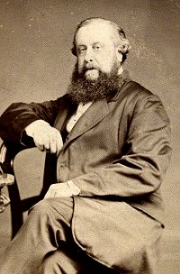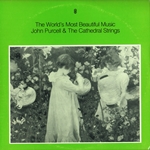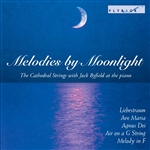William Henry Monk
William Henry Monk (16 March 1823 – 1 March 1889) was an English organist, church musician and music editor who composed popular hymn tunes, including one of the most famous, "Eventide", used for the hymn "Abide with Me". He also wrote music for church services and anthems.
William Henry Monk was born in London on 16 March 1823. His youth is not well-documented, but it seems that he developed quickly on the keyboard, but perhaps less so in composition.
By age 18, Monk was organist at St Peter's Church, Eaton Square (Central London). He left after two years, and moved on to two more organist posts in London (St. George's Church, Albemarle Street, and St. Paul's Church, Portman Square). He spent two years in each. Each served as a stepping stone toward fostering his musical ambitions.
In 1847, Monk became choirmaster at King's College London. There he developed an interest in incorporating plainchant into Anglican services, an idea suggested by William Dyce, a King's College professor with whom Monk had much contact. In 1849, Monk also became organist at King's College.
In 1852, he became organist and choirmaster at St Matthias' Church, Stoke Newington, where he made many changes: plainchant was used in singing psalms, and the music performed was more appropriate to the church calendar. By now, Monk was also arranging hymns, as well as writing his own hymn melodies. In 1857, his talents as composer, arranger, and editor were recognized when he was appointed the musical editor of Hymns Ancient and Modern, a volume first published in 1861, containing 273 hymns. After supplements were added (second edition—1875; later additions or supplements—1889, 1904, and 1916) it became one of the best-selling hymn books ever produced. It was for this publication that Monk supplied his famous "Eventide" tune which is mostly used for the hymn "Abide with Me", as well as several others, including "Gethsemane", "Ascension", and "St. Denys".
In 1874, Monk was appointed professor of vocal studies at King's College; subsequently he accepted similar posts at two other prestigious London music schools: the first at the National Training School for Music in 1876, and the second at Bedford College in 1878. Monk remained active in composition in his later years, writing not only hymn tunes but also anthems and other works. In 1882 Durham University awarded him an honorary Mus. Doc.
He died on 1 March 1889 and was buried in Highgate Cemetery.














 My Wish List
My Wish List












